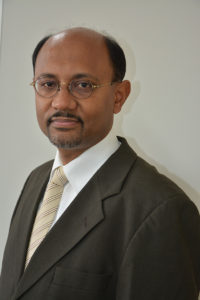It has been more than seven years since CWS Japan reopened* after the Great East Japan Earthquake and Tsunami. Since 2011, the CWS Japan team, along with its partners, have tirelessly worked with different stakeholders to ensure the best outputs from each and every initiative. CWS Japan has not only worked in response to the Tohoku and Kumamoto disasters in Japan, but it also tried to share these experiences with other vulnerable Asian countries in different ways.
With all the global development, disaster, climate change and urban and humanitarian frameworks in place, this is now the time for collaborative actions, and to make changes in our societies. For that, CWS Japan emphasizes three basic elements: 1) professional expertise, 2) innovation and 3) multi-stakeholder networks. Professional expertise is an essential base for any organization, and CWS Japan is no exception for that. We need to maintain our expertise in emergency response and risk reduction, which is linked to the second point, which is innovation. Innovation does not always mean state of art technology. To me, innovation is the state of art application. CWS Japan focuses on grass-roots innovation, which serves the people and community’s needs the most. The third and final emphasis is on multi-stakeholder networks, where CWS Japan works with governments, international agencies, other civil societies, private sector actors and academics.
As the new Chairperson of the Board of CWS Japan, I would like to note that our work focuses on the following areas: 1) High level policy advocacy with strong local evidence: we work closely with the communities, gather evidence on different issues and make collective policy advocacy at the highest level, 2) Demand driven innovation: to cover the last and the longest mile, we need to know communities’ needs and to bridge to them with innovative technologies and approaches, 3) Complex emergencies: the world is moving to deal with complex emergencies, including climate fragility, and we need more evidence based actions on these types of emergencies. I thank all of you who have supported and cooperated with CWS Japan over years, and hope that your support and partnership will continue in the coming years. I also invite other partners to join hands with us for this important mission towards achieving resilient communities. I very much look forward to our collective learning and action.
Rajib Shaw
Board Chairperson
CWS Japan

